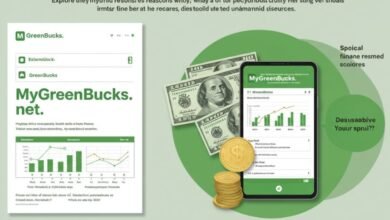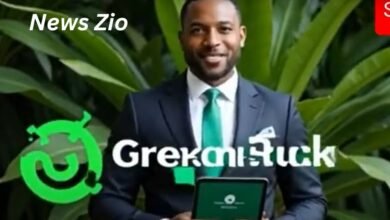BetterThisWorld Money: A Guide to Purpose-Driven Wealth

Money has always been a central part of human life—something we earn, spend, save, and stress over. Yet in recent years, a new philosophy has emerged that challenges traditional financial thinking. This philosophy is known as BetterThisWorld Money. Unlike conventional “get-rich-quick” ideas, BetterThisWorld Money emphasizes purpose-driven wealth—earning and managing money not just to secure personal success, but to create a meaningful and positive impact on the world.
At its heart, BetterThisWorld Money is a call to use money as a tool for building freedom, resilience, and responsibility—not just personal wealth, but also sustainable progress for communities, society, and the environment.
What Is BetterThisWorld Money?
The phrase “BetterThisWorld Money” can be defined as a mindset and lifestyle where money is viewed as a resource for both personal growth and collective good. It’s about aligning financial decisions with values, building systems that promote long-term stability, and recognizing that money can—and should—be a force for positive change.
Instead of asking only: How can I get rich? BetterThisWorld Money asks:
-
How can I make money while staying true to my values?
-
How can my wealth improve not just my life, but others’ lives too?
-
How can financial habits lead to independence without harming the planet or society?
The Core Pillars of BetterThisWorld Money
1. Purpose-Driven Budgeting
Budgeting is not just about cutting expenses—it’s about clarity. BetterThisWorld Money advocates for values-based budgeting, where every dollar has a role.
-
Use frameworks like the 50/30/20 rule (needs/wants/savings) or zero-based budgeting.
-
Align budgets with life goals: education, family security, entrepreneurship, or social contributions.
-
Track not just how much you spend, but why.
2. Building an Emergency Fund
Before dreaming of investments, BetterThisWorld Money insists on resilience. A 3–6 month emergency fund ensures that setbacks don’t destroy financial stability. This step transforms money from a source of anxiety into a source of confidence.
3. Conscious Spending and Debt Management
Credit card debt, payday loans, and impulsive purchases are traps. BetterThisWorld Money emphasizes conscious spending, distinguishing between wants and needs, and breaking free from toxic debt cycles. By understanding compound interest both as an enemy (high-interest debt) and a friend (long-term investing), people regain control.
4. Long-Term, Consistent Investing
BetterThisWorld Money favors slow, steady investing over speculation. It promotes strategies like:
-
Low-cost index funds and ETFs.
-
Retirement accounts with consistent contributions.
-
Patience—letting compounding grow wealth quietly over time.
This approach reframes investing from a gamble into a discipline.
5. Expanding Income Streams
One of the key tenets is diversification of income. Relying on a single paycheck can be risky. BetterThisWorld Money suggests exploring:
-
Freelancing or digital side hustles.
-
Micro-businesses with low startup costs.
-
Creative skills monetized online (courses, content, design).
These streams accelerate financial goals while nurturing creativity and independence.
6. Ethical & Sustainable Wealth-Building
The most unique aspect of BetterThisWorld Money is its ethical lens. Unlike traditional financial advice, it asks: Where is your money going?
-
Are your investments funding industries that harm the environment?
-
Could you shift funds into sustainable businesses or social impact projects?
-
Are your purchases aligned with fairness, transparency, and responsibility?
It’s about ensuring money works for you without working against the world.
The Mindset Shift: From Scarcity to Abundance
At its core, BetterThisWorld Money is a mindset shift. Instead of scarcity thinking—where money feels like it’s never enough—it promotes abundance thinking, where money is seen as a renewable resource.
Key mindset practices include:
-
Viewing money as a tool, not a tyrant.
-
Separating self-worth from net worth.
-
Using gratitude and discipline to replace impulsivity.
-
Embracing small wins: even saving $1 a day is progress.
This emotional literacy is as important as financial literacy.
Practical Steps for BetterThisWorld Money
Step 1: Set SMART Financial Goals
Define Specific, Measurable, Achievable, Relevant, and Time-bound goals. For example:
-
Save $5,000 for an emergency fund in 12 months.
-
Pay off $10,000 of debt in 24 months.
-
Start a $50 monthly contribution to a sustainable index fund.
Step 2: Automate Your Finances
Automation reduces emotional decision-making. Set up:
-
Auto-transfer to savings accounts.
-
Automatic investments into index funds.
-
Scheduled bill payments to avoid late fees.
Step 3: Educate Yourself
Knowledge is power in BetterThisWorld Money. Read about personal finance, behavioral economics, and impact investing. Listen to podcasts, follow finance blogs, and take online courses.
Step 4: Start Small, Scale Slowly
The movement emphasizes progress over perfection. Begin with small savings, small investments, or small business ideas—and scale as you learn.
Why BetterThisWorld Money Matters Today
In an era of rising costs, financial inequality, and climate crises, people are searching for meaning in their money habits. Traditional wealth-building often ignores social responsibility, while activism sometimes overlooks personal financial survival.
BetterThisWorld Money bridges that gap: it’s both personal empowerment and global responsibility. It empowers individuals to take charge of their finances while encouraging them to be conscious of the ripple effects of their financial choices.
Pitfalls to Avoid
While BetterThisWorld Money is empowering, there are traps to be mindful of:
-
Over-idealism: Trying to be “perfectly ethical” with money may overwhelm or delay progress. Balance is key.
-
Paralysis by analysis: Too much research and not enough action can stall results.
-
Lifestyle creep: As income grows, keep your expenses in check.
Real-Life Applications & Examples
-
A young freelancer allocates 50% to expenses, 30% to savings, and 20% to investments while ensuring freelance clients align with their ethical values.
-
A family chooses eco-conscious home improvements financed responsibly, saving long-term while aligning with BetterThisWorld values.
-
An entrepreneur builds a sustainable business that provides both personal profit and social good.
These stories highlight how flexible and adaptive the philosophy can be.
Conclusion: Wealth with Purpose
BetterThisWorld Money is not a product, trend, or gimmick—it’s a movement. It asks us to rethink how we define wealth, pushing us to embrace financial freedom rooted in responsibility and purpose. It’s about realizing that money isn’t just for survival or luxury—it’s for shaping the world we want to live in.
For individuals, it means budgeting with intention, saving with discipline, and investing with conscience. For society, it means channeling money into better businesses, stronger communities, and sustainable futures.
In the end, BetterThisWorld Money is about one truth: a better world is built not only by our actions but also by how we use our money.
Published on News Zio, where financial insight meets purposeful living.



